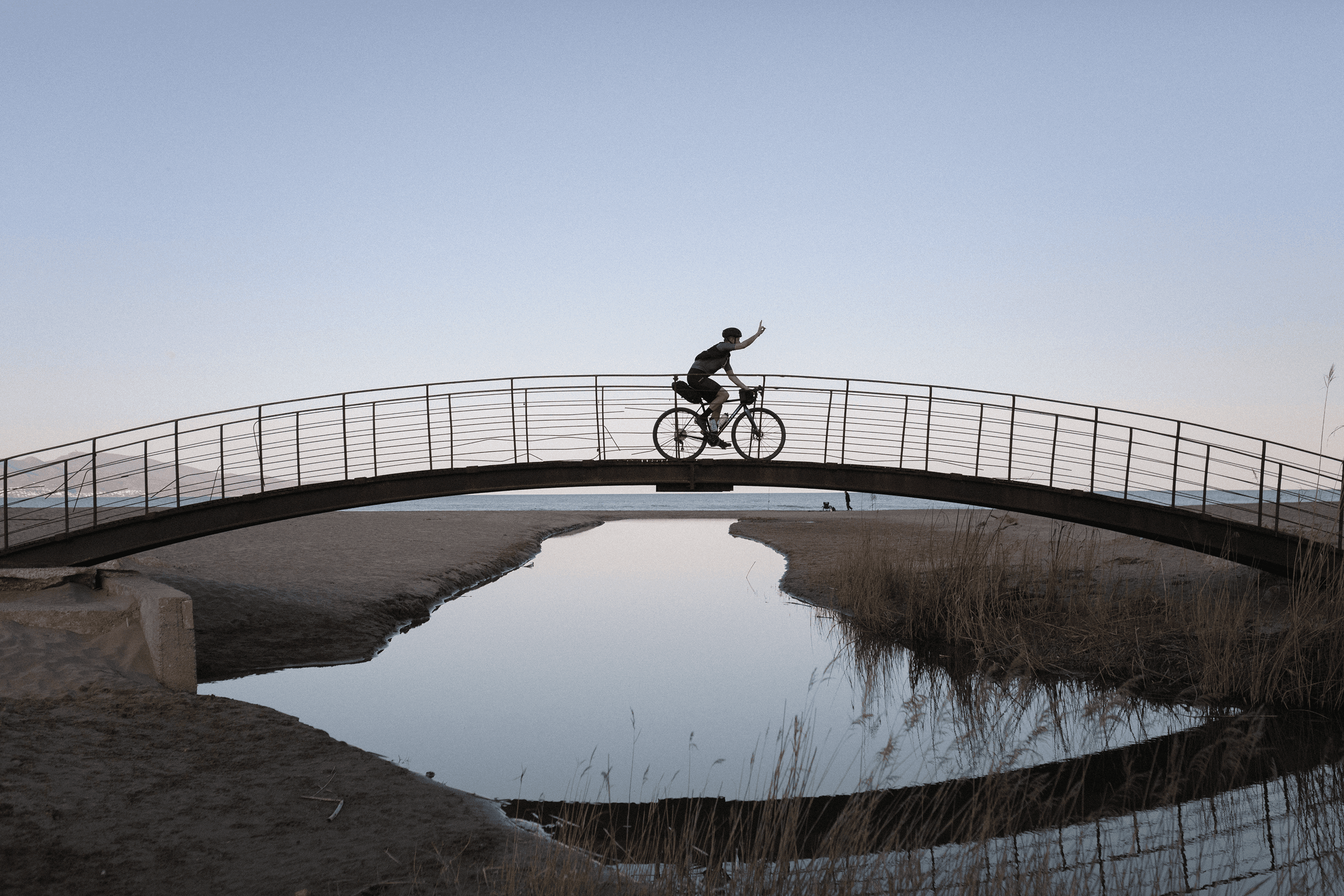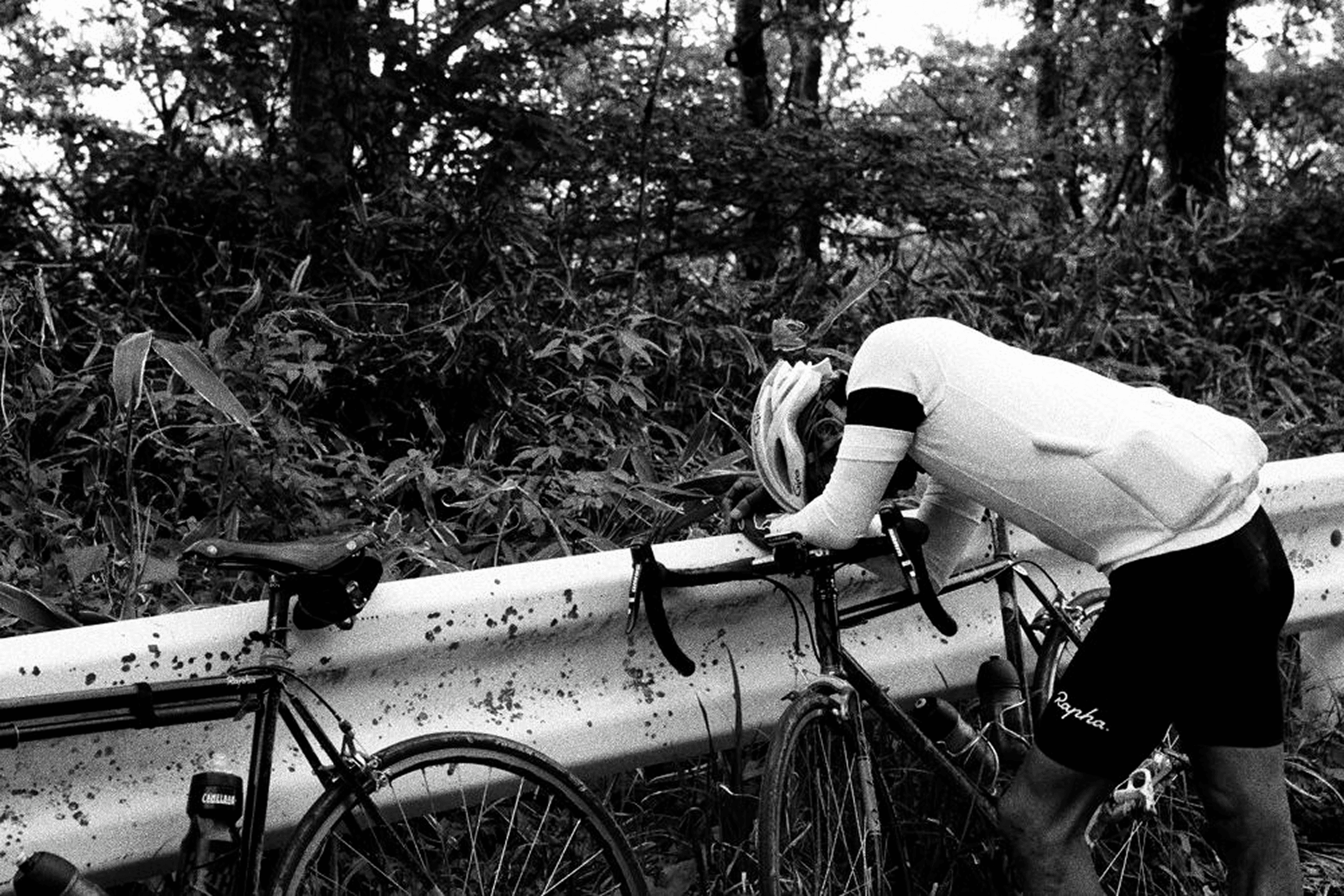Make yourself master of 'lazing'

Mar 5, 2025

Make yourself master of 'lazing'
Mar 5, 2025

Make yourself master of 'lazing'

Mar 5, 2025

"Every free hour of the day I grab my road bike to train. But instead of cycling faster and longer distances, I actually feel less energetic. Why is that?"
To want to succeed as a cyclist, resting and doing nothing should be an important part of your lifestyle. Training hard is important, but heavy training only makes sense if recovery is also "heavy.
However, the average recreational cyclist hardly ever gets around to this. Training is done in between jobs, which can lead to overtiredness and a lack of fitness. This is also reflected in the question above. The person in question trains every free hour of the day, which does not benefit his or her training.
To ensure that you recover faster and can eventually ride longer distances, we offer a few tips:
Maintain a good base condition. This means that the body is well able to burn fats during exercise. This way, the carbohydrate supply in the body can be conserved, delaying fatigue. The secret is in training long and slowly. Novice cyclists often do the opposite: short and intense.
Take your time. Make a good schedule in which you alternate heavy workouts with rest days. Find the right clothes before training and pay attention to your nutrition immediately after cycling. Especially after training, it is important to eat enough protein and carbohydrates as soon as possible.
Loose Riding. After every mountain stage in the big tours, riders nowadays sit on an exercise bike immediately afterwards. Riding loose after a hard effort ensures that the waste products in the muscles are removed faster. Therefore, conclude every workout with a cool down. The last ten minutes of training should be relaxing, so that the legs will feel a little better the next day.
And in closing, really give your body and mind a rest after each workout, before continuing with your further work and the order of the day.
"Every free hour of the day I grab my road bike to train. But instead of cycling faster and longer distances, I actually feel less energetic. Why is that?"
To want to succeed as a cyclist, resting and doing nothing should be an important part of your lifestyle. Training hard is important, but heavy training only makes sense if recovery is also "heavy.
However, the average recreational cyclist hardly ever gets around to this. Training is done in between jobs, which can lead to overtiredness and a lack of fitness. This is also reflected in the question above. The person in question trains every free hour of the day, which does not benefit his or her training.
To ensure that you recover faster and can eventually ride longer distances, we offer a few tips:
Maintain a good base condition. This means that the body is well able to burn fats during exercise. This way, the carbohydrate supply in the body can be conserved, delaying fatigue. The secret is in training long and slowly. Novice cyclists often do the opposite: short and intense.
Take your time. Make a good schedule in which you alternate heavy workouts with rest days. Find the right clothes before training and pay attention to your nutrition immediately after cycling. Especially after training, it is important to eat enough protein and carbohydrates as soon as possible.
Loose Riding. After every mountain stage in the big tours, riders nowadays sit on an exercise bike immediately afterwards. Riding loose after a hard effort ensures that the waste products in the muscles are removed faster. Therefore, conclude every workout with a cool down. The last ten minutes of training should be relaxing, so that the legs will feel a little better the next day.
And in closing, really give your body and mind a rest after each workout, before continuing with your further work and the order of the day.
"Every free hour of the day I grab my road bike to train. But instead of cycling faster and longer distances, I actually feel less energetic. Why is that?"
To want to succeed as a cyclist, resting and doing nothing should be an important part of your lifestyle. Training hard is important, but heavy training only makes sense if recovery is also "heavy.
However, the average recreational cyclist hardly ever gets around to this. Training is done in between jobs, which can lead to overtiredness and a lack of fitness. This is also reflected in the question above. The person in question trains every free hour of the day, which does not benefit his or her training.
To ensure that you recover faster and can eventually ride longer distances, we offer a few tips:
Maintain a good base condition. This means that the body is well able to burn fats during exercise. This way, the carbohydrate supply in the body can be conserved, delaying fatigue. The secret is in training long and slowly. Novice cyclists often do the opposite: short and intense.
Take your time. Make a good schedule in which you alternate heavy workouts with rest days. Find the right clothes before training and pay attention to your nutrition immediately after cycling. Especially after training, it is important to eat enough protein and carbohydrates as soon as possible.
Loose Riding. After every mountain stage in the big tours, riders nowadays sit on an exercise bike immediately afterwards. Riding loose after a hard effort ensures that the waste products in the muscles are removed faster. Therefore, conclude every workout with a cool down. The last ten minutes of training should be relaxing, so that the legs will feel a little better the next day.
And in closing, really give your body and mind a rest after each workout, before continuing with your further work and the order of the day.
More Relevant Articles
Discover valuable training tips to enhance your cycling performance.
More Relevant Articles
Discover valuable training tips to enhance your cycling performance.
More Relevant Articles
Discover valuable training tips to enhance your cycling performance.

Unlock Your Cycling Potential Today
Join thousands of cyclists who have improved their performance with JOIN's training plans.

Unlock Your Cycling Potential Today
Join thousands of cyclists who have improved their performance with JOIN's training plans.
By joining, you agree to our Terms and Conditions and our Privacy Policy.

Unlock Your Cycling Potential Today
Join thousands of cyclists who have improved their performance with JOIN's training plans.
By joining, you agree to our Terms and Conditions and our Privacy Policy.



